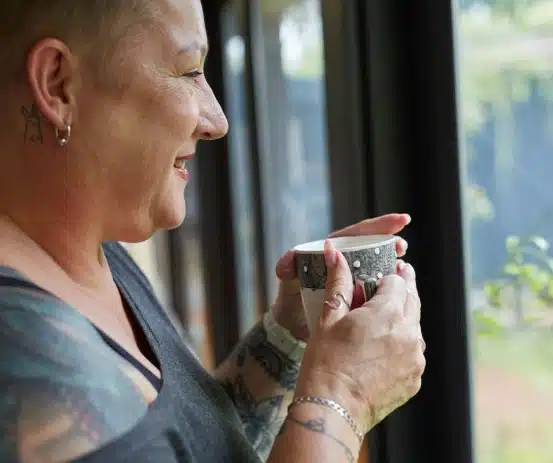ADHD therapy

A Transformative Approach to ADHD Care
At Create Wellbeing Therapy Collective, we are passionate about supporting individuals with ADHD to thrive. ADHD is not just about difficulty paying attention or staying organized—it’s a complex neurodevelopmental condition that impacts emotional regulation, relationships, productivity, and overall well-being. For many, living with ADHD can feel like trying to navigate life while constantly shifting gears without a map.
That’s where we come in. Our 3-Stage Model of Care—Calm your distress. Engage your whole self. Integrate healing into your life.©—is a framework designed to meet the unique needs of individuals with ADHD. This model doesn’t just address the symptoms of ADHD but works holistically to support lasting change.
Through evidence-based practices, compassionate care, and a deep understanding of the brain-body connection, we help you develop the skills, strategies, and self-awareness needed to live a life of balance and fulfillment.
Stage One: Calm Your Distress
Living with ADHD can be overwhelming. Many people describe a constant buzz of mental activity, making it difficult to relax or focus. Emotional challenges, such as heightened sensitivity to criticism, frequent frustration, or anxiety, are also common. For some, these feelings are compounded by years of misunderstood behaviors or unmet expectations.
Our first step is to help you calm the distress that ADHD can bring. When the nervous system is in a heightened state—whether from stress, overstimulation, or emotional overwhelm—it becomes harder to access the executive functioning skills needed for focus, organization, and decision-making.


To establish a foundation of calm, we use tools and techniques rooted in the latest research, such as:
- Mindfulness-Based Practices: These include exercises designed to increase awareness of the present moment, helping you reduce the noise of racing thoughts and emotional turmoil. Mindfulness not only calms the mind but also strengthens areas of the brain responsible for self-regulation.
- Somatic Approaches: ADHD often affects the body as well as the mind, leading to physical tension, restlessness, or difficulty relaxing. Somatic interventions help you reconnect with your body, offering tools to release stress and anchor yourself during moments of overwhelm.
- Nervous System Regulation Techniques: Inspired by polyvagal theory, these strategies support the nervous system’s shift from “fight, flight, or freeze” into a state of calm and safety. This is essential for creating the emotional and mental space needed for growth.
Our goal in this stage is not just to manage immediate distress but to give you a toolkit for soothing yourself whenever life feels chaotic. By calming the mind and body, we create the foundation for deeper exploration and lasting transformation.

Stage Two: Engage Your Whole Self
ADHD impacts more than just attention—it’s woven into every aspect of who you are. This stage of care focuses on helping you engage your whole self by exploring the unique interplay of your strengths, challenges, emotions, and relationships.
Rather than viewing ADHD as a deficit, we encourage a broader perspective: ADHD is a different way of processing the world. When approached with curiosity and self-compassion, this difference can become a source of creativity, energy, and resilience. However, this requires understanding how ADHD operates in your brain and life.
Here are some of the evidence-based approaches we use to help you engage with yourself fully:
Cognitive Behavioral Therapy (CBT)
CBT is one of the most well-researched and effective therapies for ADHD. It helps you identify and reframe negative thought patterns that often accompany ADHD, such as self-criticism or perfectionism. Through CBT, you’ll learn practical strategies for managing time, setting realistic goals, and breaking down overwhelming tasks into manageable steps.
Interpersonal Neurobiology (IPNB)
Emotion-Focused Techniques
Polyvagal-Informed Therapy
ADHD can lead to feelings of being stuck in a reactive state—always on edge or easily triggered. Polyvagal-informed techniques help you access the social and emotional safety needed to engage more fully with yourself and the world around you. These practices support greater resilience, allowing you to move through life with confidence and calm.
Engaging your whole self means embracing your unique way of experiencing the world while addressing the areas where ADHD presents challenges. By building self-awareness and strengthening your ability to connect with yourself and others, you’ll develop a greater sense of balance and authenticity.


Stage Three: Integrate Healing into Your Life
- Establishing Sustainable Systems: Together, we’ll design systems tailored to your unique needs and strengths. This might include creating routines that work for your brain, finding technology or tools to support organization, or establishing habits that promote consistency and success.
- Fostering Resilient Relationships: ADHD can impact how you communicate, express emotions, and navigate conflict. We work with you to strengthen interpersonal skills, set healthy boundaries, and foster deeper connections with loved ones.
- Refining Emotional Regulation: Emotional ups and downs don’t disappear overnight, but with practice, you can build resilience and bounce back more quickly. We’ll continue to support you in refining the techniques that work best for managing emotions and staying grounded.
- Ongoing Support: Life is dynamic, and so is ADHD. We understand that new challenges may arise as you move through different stages of life. Our team is here to provide guidance and encouragement as you continue your journey.




